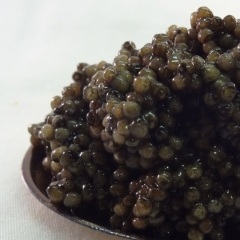EU leaders will certainly hold their very first detailed conversation next week of specific steps they can take versus Russia if Ukraine’s elections are not complimentary and reasonable, consisting of limitations varying from luxury products imports to an oil and gas ban.
A two-page file setting out three situations– low-intensity, medium-intensity and high-intensity sanctions– was distributed to member states last month and will form a basis of conversation at a leaders’ top on May 27.

Under the first, low-intensity circumstance, according to information from the file provided to Reuters, the EU would impose constraints on imports of Russian luxury items consisting of diamonds, rare-earth elements, furs, vodka and caviar.
In regards to exports, the EU could limit the sale of fertilizers, tires, vessels and chemicals to Russia, although components for the steel and nuclear industry would be omitted. There would also be limitations on arms imports and exports.
At the toughest, high-intensity end of the scale, the EU is thinking about capital-market limitations, a possible prohibition on brand-new financial investment in Russia, the strict application of EU regulatory rules on any Russian assets composed EU companies, and eventually a complete ban on imports of oil and gas fromRussia.
Prohibiting oil and gas would have a powerful effect on the economy. The EU imports around 30 per cent of its energy requires from Russia at a complete cost of about 130 billion euros in 2013, according to European Commission figures. Several nations are nearly totally depending on Russian energy.
The measures under factor to consider by the EU are what have actually been dubbed “phase three” sanctions, following property freezes and travel bans on Russian and Ukrainian people– the initial step– and constraints on some companies.
While the EU has consistently said it is prepared to move to stage three sanctions if Russiadestabilizes eastern Ukraine or conflicts with governmental elections on May 25, there is no unanimous backing for such a step.
Some nations with close trade and energy ties with Russia, such as Italy, Greece and Germany, are fretted about the potential effect on their economies of stricter sanctions, and others, such as Cyprusand Austria have close financial links.
Unless there is consentaneous backing for stricter sanctions, the EU will certainly not have the ability to move ahead– a hurdle that has been frustrating for the United States, which is keen for Europe to move additionally in imposing limitations on Moscow.
At their top on Tuesday, leaders will certainly talk about a list of sanctions that incorporates aspects from the low-intensity, medium-intensity and high-intensity classifications, one diplomat stated.
“A basket of concrete measures has currently been prepared … and it takes steps from all three situations, consisting of sanctions in the financial, energy and arms sectors,” said the diplomat, talking on condition of anonymity.
The middle situation laid out in the document consists of constraints on trade and investment connected to financial services and on the free motion of capital, in addition to an import ban on coal, limitations on maritime and road transport and a time out in financial investment in the Russian energy sector.
Germany’s Deutsche Bank stated in a research note that Europe might pay for to impose hard sanctions on Russia, arguing that the influence on GDP would not be exceedingly harmful.
“The Ukraine crisis and more sanctions will not be insignificant for the profile of the European recovery, but when taking a look at the circulation of costs, it seems that the West can manage to be tough in the direction of Moscow,” it said.
Even if sanctions compel Russia’s economy to contract by 10 per cent, the influence on Germany– its largestEU trading partner– would be very little, knocking about 0.5 portion points off 2014 development, Deutsche Bank said.
EU member states continue to be extremely concerned about the possible blowback from challenging sanctions on Russia, and diplomats have actually said they do not want to provoke another financial crisis after years of debt turmoil.
That recommends that while sanctions will certainly be a crucial subject at Tuesday’s summit, reaching an unanimous position on additional challenging measures remains some means off and may never happen if Russia steps back and Sunday’s elections in Ukraine are calm.

